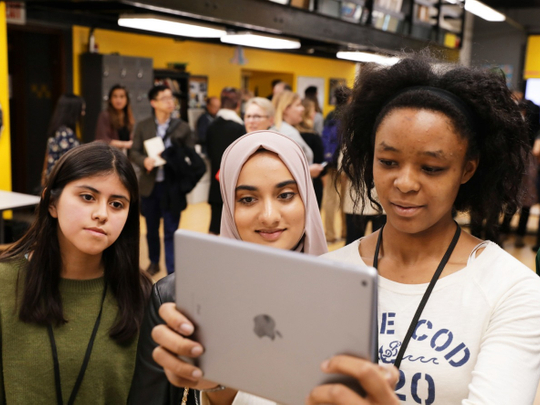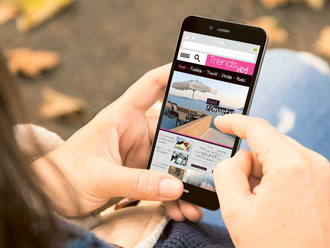
If you weren’t aware - and I wasn’t until Tuesday morning - there is a growing battle for technology in our schools.
It’s not a fight over what students learn but over the technology that teachers use. The battle made for a very different Apple event in Chicago. Tech reporters - who are always at the these events in force and feast on Apple’s litany of updated specs - seemed like second class citizens. Teachers - or more likely administrators, who set IT budgets for their school districts - became the target audience, and were given examples of real teachers using Apple products in their class rooms.
I’m not an education reporter, but given Apple’s stated goal of perfecting already existing technology, I immediately wanted to know what teachers had previously been using. From most of the teachers I talked to, the short answer was: nothing. Google didn’t launch its Classroom app until 2014. Apple launched its Classroom app in 2016. The few teachers I talked to seemed very excited about the new technology coming their way.
Apple Augment Reality platform is finding its way into the classroom. Froggipedia gives students a new way to study biology, even letting them use the Apple Pencil to dissect frogs.
Apple’s classroom looks to be pretty comprehensive (said the reporter whose never taught a day in his life), and it gives the teachers complete control over their student’s devices. From their own iPad or MacBook, teachers can monitor student’s progress, including actually seeing what student are doing on their iPad, and sending out digital materials. Teachers can also send out homework via an app called Schoolwork. Students have to play along, as any attempt to escape to social media would be detected.
Augmented Reality
If there is one place that Apple looks set to beat the competition, it is with its augmented reality platform. When Apple first launched its AR kit last year, good AR apps were hard to find. Most people were expecting games, but we were looking in the wrong place. The education category is now the place to go for game changing augmented reality apps.
Apple's Classroom apps, which will now be available on the MacBook, gives teachers complete control of the Apple devices in their classrooms.
Apple was plugging three apps at its conference. The first focused on art, literally. It allows people to get up close and person with virtual pieces of art, even closer than a gallery would allow.
Another app lets people understand how damming rivers can affect the environments by allowing you to run a virtual river over your living room table and then dam it to see what happens.
Finally, there is Froggipedia. No longer will the kiddies have to cut up a real frog for their biology class - the app lets them use the Apple Pencil as a scalpel.
Apple has also integrated other features in these education apps, included the ability to edit video and audio and use them to make presentations. The Pencil, which was once pretty much the exclusive plaything of artists, has also been made compatible with these programs.
I bet parents can’t wait to shell out Dh399 for an Apple Pencil, which of course you know they’ll lose.
Why would Apple and Google do this? Some of the applications listed above require license fees, but most of it is free.
A student records video for a presentation.
The answer is, and I’m going to quote Orwell here, is that he who controls the past controls the future. Sorry, not trying to be dark; it’s just a proven business tactic.
If you used Macs and iPad as a kid, you’re more likely to use them as an adult. Currently, that’s a battle Apple is losing. Google with its Chromebooks and Android tablets dominate the classroom. Even Microsoft has a (slightly) bigger presence in schools
But if Apple can sell schools and students on its educational software, then if will also be selling the iPad and Macs that go with it, which Apple hopes will generate future sales when those kids grow up.












